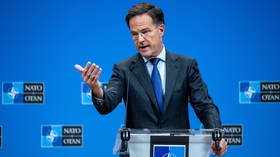Russia and Greece to step on the gas
Greek Prime Minister Kostas Karamanlis and President Vladimir Putin are stepping on the gas. They have signed the deal for the South Stream pipeline accord in Moscow.
To watch the news conference following the meeting of Greek Prime-Minister Kostas Karamanlis and Russia's President Vladimir Putin please follow the link.
“It’s a very good chess move as it combines three factors: defence, development and pre-emption, and Russians are good chess players. Gazprom is trying to defend its position in Europe by building yet another route bypassing Ukrainian. The company is trying to develop new markets. In this case, it’s southern Europe, which is not a traditional market for Russian gas. Also Gazprom is trying to pre-empt or block the flow of Central Asian gas via alternative routes designed to bypass Russia, and instead to encourage this flow to join South Stream, which will go through Russian territory,” Vitaly Yermakov from Cambridge Energy explained.
The joint venture between Russian gas giant Gazprom and Italy’s Eni costs around $US 14 billion. The 900-kilometre line will go via the Black Sea to Bulgaria and on into Europe.
Oil is another area of mutual interest, with Athens taking part in the Burgas-Alexandroupolis project.
“It's another way for Russia to transport its crude to Europe,” said Nelli Sharushkina from Energy Intelligence Group.
This oil pipeline starts in the Bulgarian port of Burgas and extends to the Greek city of Alexandroupolis, bypassing the busy Bosphorus and Dardanelles.
Construction will begin this year, and it’s estimated it will be completed by the beginning of 2011.
“Anyway you look at it, Europe will remain the main market for Russian energy. Russia's presence is very strong in northern Europe, in countries like Germany, but southern countries like Italy, Greece or Spain are quite new and Russia is seeking to strengthen its position there,” Nelli Sharushkina added.
Greece is becoming an energy hub, and is also likely to be a transit for trade.
Today it is an even more popular destination for Russian tourists, but the two countries are also brothers in arms.
A member of NATO, Greece still imports weaponry from Russia.
“Greece is primarily interested in three things: air defence, naval equipment, mainly landing ships, and ground machinery like armoured carriers,” said Ivan Konovalov from the Centre For Strategy & Technology Analysis.
The two leaders have met at least five times over the past couple of years. For Putin it’s a chance to say goodbye to possibly his last foreign guest as president.












